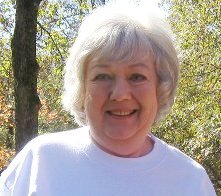
Changes
Change affects us in different ways. Some people embrace change – even seek it out. You know them. They like new experiences. Some even parachute out of planes. I belong in this category. I love discovering new things and ways except for leaping out of a plane.
Yet, some hate change and resist to their last breath. Their final words are usually:
- “We have always done it this way.”
- “We have never done that before.”
- “We tried it once. It didn’t work.”
Within the second category is a sub-group that adapts to a
different world but refuses to admit reality to themselves or others.
They reinforce their ideas by turning a blind eye to the world around
them.
I am reminded of an old Ozark story that went like this:
- “There was a man born in Missouri, he was a rambling man. First,
he moved to Arkansas, then Oklahoma, on to Texas where he died and went
to hell. The change had been so gradual that he didn’t notice the
difference.”
- Although this is about regional competition, it makes my point.
How we see change isn’t always an individual choice. Sometimes
the powerful decide that, to paraphrase a line from “A Few Good Men”, we
“can’t handle the truth” and provide “alternative facts” to encourage
compliance with a false reality. I became aware of this when I watched a
doctor from the CDC on a cold evening in February 2020. She warned us
that there were drastic changes ahead – school closings, business
procedures changed and that we would all be seriously affected by this
powerful new virus that had gained a foothold in the world. She was
quickly whisked away and we never saw her again.
Which brings me to the effect that COVID has had on our
lives. At first, it wasn’t too much different for me. I liked staying at
home in the cold late winter in Minnesota. I did sneak out covered with
hand sanitizer, mask, and gloves to purchase a new sewing machine. I
rationalized the expense by thinking it was for a good cause. I quickly
started making masks for family and friends, and then to donate to my
clinic, my dentist, and University Hospitals. I liked feeling I was
making a contribution to society. I quit making them when I realized
that there were better alternatives available.
As time went on, I realized I was lonely and isolated. My
life was upside down. All of my routines – buying groceries, taking
classes, going to church were gone and replaced by new ones that
required technical skills. Tasks had to be handled online if I were to
avoid contact with others. No more going into shops and restaurants. If
something was needed it was ordered online and delivered or picked up at
curbside. No more idle chatter with a server or a checkout clerk.
Zooming and streaming paled in comparison to remembered meetings
face-to-face, but I liked it for some experiences. I liked online
writing classes, routine medical visits that didn’t require my physical
presence, and committee meetings. They saved a lot of time.
Now, more than two years into the pandemic everyone I know
seems weary and anxious. Is this never going to end? My parents both
were sickened by the 1918 Flu Pandemic. They seldom mentioned it and it
did end officially in April of 1920, but it morphed into a less deadly
flu that we still deal with each year. I believe it is likely that COVID
will do the same.
There are signs that the pandemic is weakening. Impatient
governments are lessening restrictions and the general public seems
ready to take risks. As an older person with multiple risk factors, I am
emerging from the safety of my cocoon more slowly. I have returned to
church services, where we still wear masks and everyone is vaccinated. I
will return to a sewing group that I love as it also is cautious about
taking chances. It may take longer to go back to likely crowded spaces
like the grocery stores or shops.
It seems I have slipped from Category 1 to Category 1-1/2. I
am not as ready for change as I once was, at least where my health is
concerned. I’m not totally resistant to change, but I am still not ready
to jump from that safe plane.





No comments:
Post a Comment